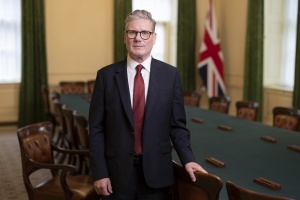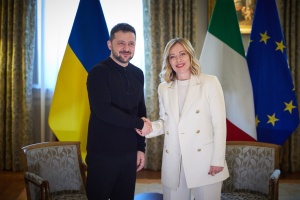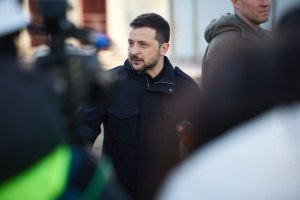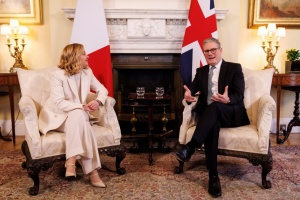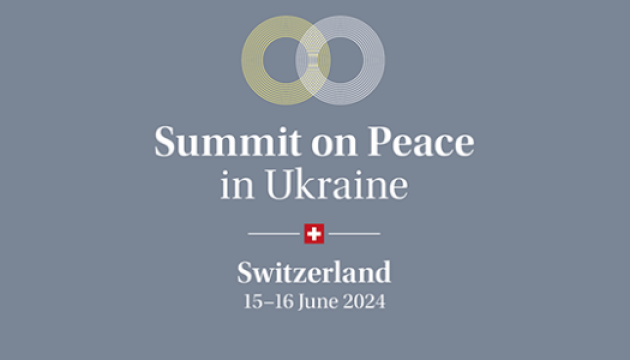
How Moscow is trying to discredit the Peace Summit
The Center for Strategic Communications and Information Security explains why this international event is important and how Russia is trying to hinder it.
The Ukrainian state is always at the forefront of world peacemaking efforts
Since the restoration of independence, Ukraine has been making active efforts to maintain peace and security around the world. For 30 years, Ukrainian contingents participated in peacekeeping operations in Balkans, Caucasus, Middle East, and African countries. Wherever Ukrainians performed peacekeeping missions, they protected people everywhere. Due to Ukrainian peacekeepers, the inhabitants of the Bosnian town of Zepa did not share the sad fate of the inhabitants of Srebrenica in July 1995.
Ukraine also always comes to the aid of countries suffering from natural disasters, sending its rescuers, equipment and humanitarian goods. Even after the beginning of full-scale Russian aggression, when it was constantly faced with rescuing its citizens from the rubble of houses destroyed by the enemy, Ukraine found an opportunity to help Turkey suffering from an earthquake in February 2023, by sending specialists and special equipment.
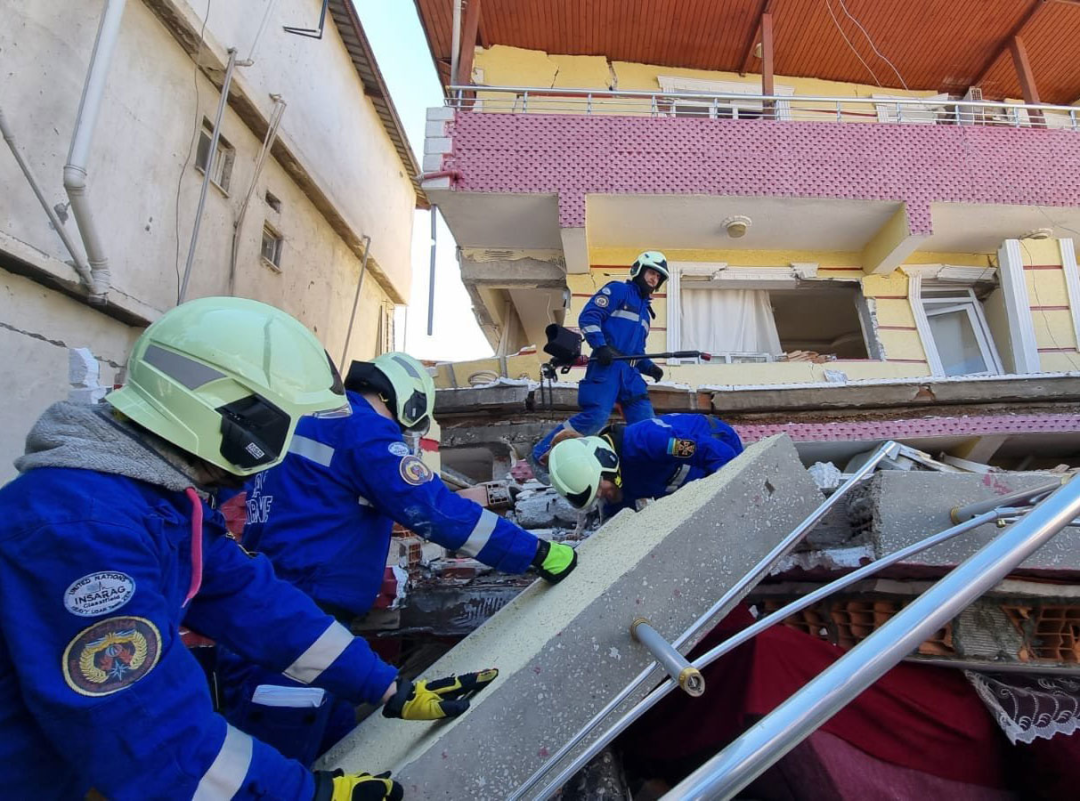
Ukraine voluntarily refused the third nuclear arsenal in the world. Kyiv agreed to such a step, sincerely relying on the guarantees received from the great states, in particular from the Russian Federation. It was Russia that received Ukrainian nuclear weapons and is now threatening to use them to strike Ukraine.
The full-scale aggression of the Russian Federation against Ukraine brought the world and international security to the brink. This is not just a crime against a single country, but a terrifying precedent that can trigger a chain reaction of armed aggression anywhere on the globe. In addition, every war in the 21st century will have a destructive effect on others, non-combatant countries. This was well proven by the Russian-Ukrainian war, which caused a food crisis in the Global South countries.
Ukraine suffers human losses among defenders and civilians every day, and therefore it yearns for peace more than others. However, it should be a just peace, rather than one that rewards the aggressor with territories and disregards the damages caused by him. And even more, not on the terms of surrender to the invader. Such cease-fire options can only be temporary because they encourage the attacker to continue aggression, and the victim to resist and take revenge.
That is why Ukraine offers the world its vision of a just peace, which includes not only the cessation of Russian aggression, but also measures to build a safe world. And this is another proof that Ukraine is at the forefront of global peacemaking efforts.
10 points of the Ukrainian peace formula as a guarantee of global security
On November 15, 2022, President Volodymyr Zelenskyy announced 10 points that became the basis for the Ukrainian peace formula:
- Nuclear safety as a guarantee of preventing the use of blackmail by Russia.
- Food security to prevent hunger, especially in the Global South countries.
- Guaranteeing the energy security of Ukraine and the world, its inviolability from Russian issile and drone attacks and the prevention of Russian energy blackmail against any country.
- Russia’s release of prisoners of war, civilian hostages and deportees, including children.
- Restoration of the territorial integrity of Ukraine, implementation of the UN Charter and international law, as a guarantee of the stability of the world order and the prevention of precedents of future military aggressions in the world.
- Cessation of hostilities and withdrawal of Russian troops from Ukraine.
- Restoring justice through the investigation and trial of Russian war criminals and payment of compensation for the damage caused to Ukrainians.
- Prevention of ecocide, restoration of the damaged Ukrainian ecosystem and demining.
- Effective security guarantees for Ukraine to prevent escalation and relapses of Russian aggression.
- Legal fixation of the fact of war’s end after the fulfilment of the previous nine points.
At the Peace Summit on June 15-16, three out of 10 points will be considered, which are among the key points for guaranteeing the safety of Ukrainian citizens and all of humanity. These three points are among the easiest for Russia to implement: nuclear security, shipping security (on which food security depends) and the release of prisoners of war, civilian hostages and deported adults and children to Ukraine. Only one decision of the Kremlin is enough for all of this. But its refusal will clearly show the world who is who, one more time.
Russia is attacking the Peace Summit with disinformation because it fears the consolidation of international support for Ukraine
Moscow regards Kyiv’s peacemaking efforts and their support by the international community as a threat to itself, as they demonstrate the hypocrisy of Russian rhetoric about the ‘’desire for peace’’, which is not supported by any actions. Instead, Russia continues its destructive military aggression, and at the same time tries to discredit the Peace Summit.
The key Kremlin’s propaganda narratives regarding the Peace Summit are as follows:
- without Russia, it makes no sense to hold the Summit;
- Ukrainian peace formula of is empty declarations, detached from reality;
- Russia is ready for negotiations, but based on new territorial realities;
- no one will come to the Summit;
Summit is an anti-Russian gathering of Western imperialists and Ukraine (this narrative is aimed mainly at the countries of the Global South).
The discrediting of the Summit by Russian propaganda overlaps with another information operation: the denial of the legitimacy of the president and the political leadership of Ukraine, after the following elections were to be held. They said Volodymyr Zelenskyy is no longer authorized to address partners on behalf of the state.
Switzerland, which hosts the Peace Summit, is also subject to information attacks. Propaganda claims that the organization of this event violates its neutral status. Switzerland also recorded an increase in cyberattacks and disinformation, shortly before the Summit.
How can Ukraine and the world counter these narratives?
The thesis about ‘’Moscow’s peacefulness’’ does not withstand any criticism, the statement about ‘’the absurdity of holding a summit without Russia’’ offers no other alternative. Putin’s regime has not taken any steps to prove readiness for peace, and uses any international platform only for its propaganda (as shown by every speech of the Russian representatives at the UN, without exception). Peace ‘’based on existing realities’’ means, in fact, the preservation of the Russian occupation and terror against civilians, as Ukraine persistently points out.
Public doubts about Swiss neutrality are also unfounded, because neutrality does not interfere with mediation diplomatic efforts, as well as efforts to discern the truth.
Russia failed to impose on the world its thesis about the ‘’illegitimacy’’ of the President of Ukraine, as the argumentation about the impossibility of holding elections and the grounds for extending the powers of the current authorities is legally perfect and clear.
The Kremlin’s efforts to devalue the Peace Summit are intended to dissuade countries and international organizations that are still hesitating to participate. Unfortunately, Russia has some success in this: not all invited, whose voice is important, will participate.
As of today, the participation of several dozen countries and international organizations has been confirmed. About half of them will be represented by state’s leaders. The number is not yet final, as unprecedented security measures have been taken due to the large representation of high-ranking officials from many countries. The list of participants is not disclosed until the Summit.
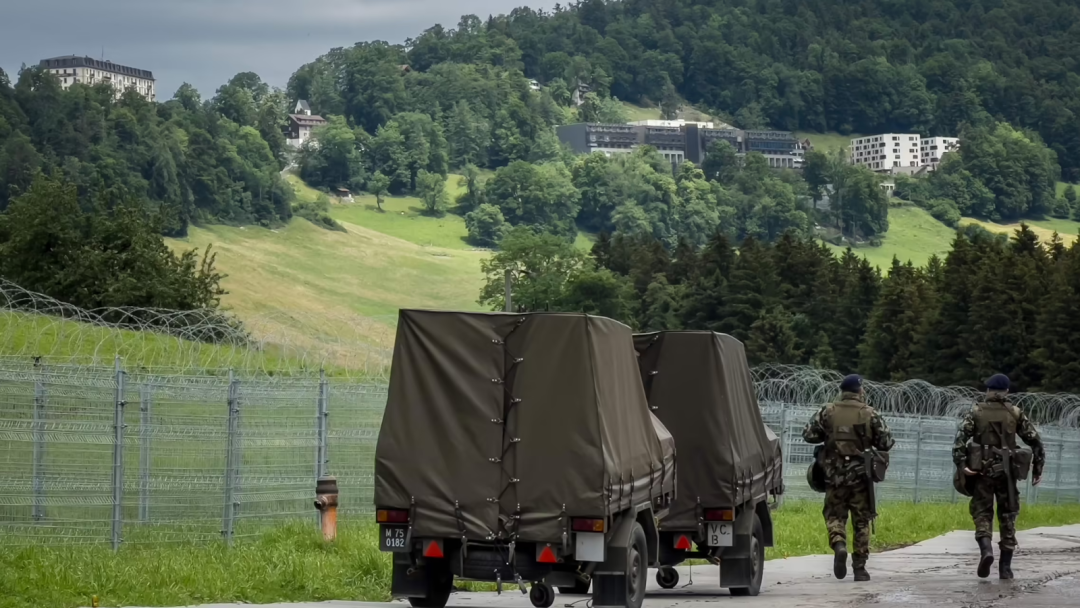
However, there are problems with supporting Ukraine’s peacekeeping efforts in the Global South. Firstly, Ukraine in the world is associated with the West, which mostly helps it. Strong anti-Western resentment prevents post-colonial countries from seeing Ukraine as a victim of imperialism just like them. Many countries are inclined, in line with Russian rhetoric, to perceive Ukraine not as a subject, but as a territory for clarifying relations between Russia and the West, and the war as the expansion of the U.S. and Europe into Russian possessions.
Secondly, countries that are victims of wars and injustice often zealously perceive increased international attention to Ukraine. The suffering of Ukrainians is regularly contrasted with the situations in Gaza, Syria, and African countries, which they say the world prefers not to notice. The perceived exceptionalism of Ukraine causes irritation and hostility, and attempts to devalue the scale of the crisis caused by Russian aggression.
The answer to these challenges should be the maximum integration of the Russian aggression problem into the broad international context. Indeed, Ukraine is primarily fighting for itself, but the gains of its struggle (the restoration of the international law effectiveness) will be able to be used by all aggrieved parties.
After all, Ukrainians should communicate directly with the Global South societies, establish horizontal ties, as it has been done with the Western world. This is the best way to destroy myths about Ukraine, an opportunity to convey the truth and tear the mask from the aggressor.
Russia, like the Soviet Union before, pretends to be the main anti-colonial force, a friend of all the enslaved, a fighter for equality and justice in international relations. Meanwhile, in its attitude not only to Ukraine, but also to many countries of the Global South, the Russian Federation shows the worst example of imperialism and racism. The truth about this must be conveyed.
Center for Strategic Communications and Information Security

